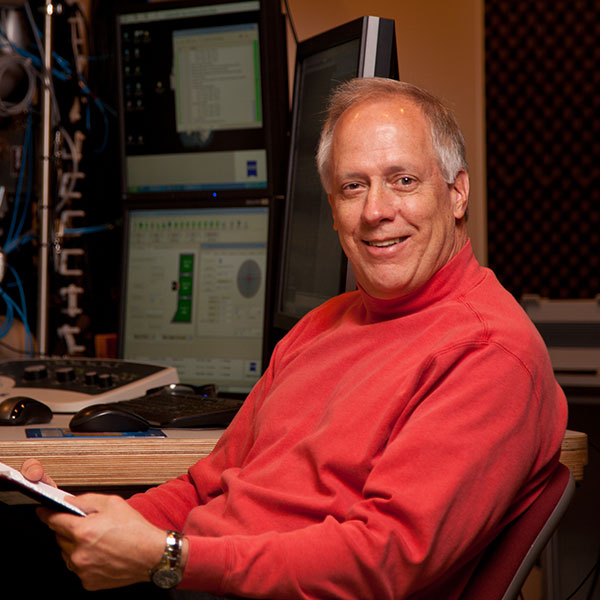
UT: szinkle@utk.edu
ORNL: zinklesj@ornl.gov
Phone
UT: 865-974-4589
ORNL: 865-576-5785
Steven Zinkle grew up on a dairy farm “close to nowhere” in Wisconsin. Although he had little exposure to science during high school, he wanted to pursue a career other than farming.
As an undergraduate in college, he discovered a passion for nuclear materials research and development. Looking back, he thinks that working on his family’s farm “served as a valuable crucible for decision-making and developing innovative solutions to challenging problems.”
After being employed at Oak Ridge National Laboratory since 1985, Zinkle joined UT’s faculty in 2013 as the UT-ORNL Governor’s Chair for Nuclear Materials. He holds a joint appointment in the UT Departments of Nuclear Engineering and Materials Science and Engineering. The UT-Oak Ridge Innovation Institute oversees the Governor’s Chair program, and UT and ORNL’s other joint efforts. The Governor’s Chairs program provides joint appointments at UT and ORNL for some of the nation’s top scientists.
Zinkle’s research focuses on developing new materials that can withstand extreme environments for nuclear fission and fusion energy applications, from nuclear power plants to hypersonic vehicles to rockets that will make quicker trips to Mars.
A major focus of his research involves using ions and neutrons to explore the stability of materials, including “self-healing” resilience to particle displacement damage. He also uses computational materials science tools to guide the development of new high-performance materials. His research group uses advanced manufacturing techniques, such as laser powder bed direct energy deposition and ultrasonic additive manufacturing, to synthesize unique high-performance materials.
Zinkle is a key player in two recently announced initiatives.
He is leading the materials for the extreme environments research initiative in the Center for Advanced Materials and Manufacturing (CAMM), an $18 million project funded by the National Science Foundation announced in June 2023.
CAMM researchers will use machine learning and artificial intelligence to design, fabricate, and test new complex metallic alloys and ceramic materials that could replace today’s steel and nickel-based alloys. Such materials might be used to build nuclear
reactors for sustainable clean energy production and advanced propulsion technologies, such as aircraft capable of hypersonic flight.
Zinkle is also part of a new five-year partnership between the United States and the United Kingdom, announced in March 2023, to test materials that could be used in future nuclear fusion power plants.
Since 2019, Zinkle has led UT engineering students on a NASA-funded project to study nuclear fuel materials that could withstand the effects of ultra-high temperatures (>2,800K) and hot hydrogen corrosion associated with nuclear-powered thermal propulsion, which could propel faster rockets to Mars.
He is also researching accident-tolerant fuel systems for reactors in the wake of the 2011 Fukushima Daiichi nuclear power plant disaster in Japan.
Zinkle’s awards include the American Nuclear Society’s 2022 Glenn Seaborg Award; ASM International’s 2018 Gold Medal; the American Ceramic Society (ACS)’s 2017 Edward Orton Jr. Memorial Lecture Award; and the 2017 Robert Franklin Mehl Award, one of the most prestigious given for scientists in his field by The Minerals, Metals, and Materials Society (TMS).
He is a member of the National Academy of Engineering and a fellow of the American Physical Society; the Materials Research Society; the American Association for the Advancement of Science; ASM International; ANS; TMS; and ACS. He has been the senior editor of the Journal of Nuclear Materials since January 2016.
Zinkle earned his bachelor’s degree, a master’s degree, and a doctorate in nuclear engineering, along with a master’s degree in materials science, from the University of Wisconsin, Madison.
Prior to joining the UT faculty, he was a UT–Battelle Corporate Fellow and chief scientist for ORNL’s Nuclear Science and Engineering Directorate. He led ORNL’s nuclear materials and science technology group from 2001 to 2006 and directed the Materials Science and Technology Division from 2006 to 2010.
Zinkle and his wife, Teresa, have two grown sons. Outside of work, he enjoys spending time with his family and jogging.
